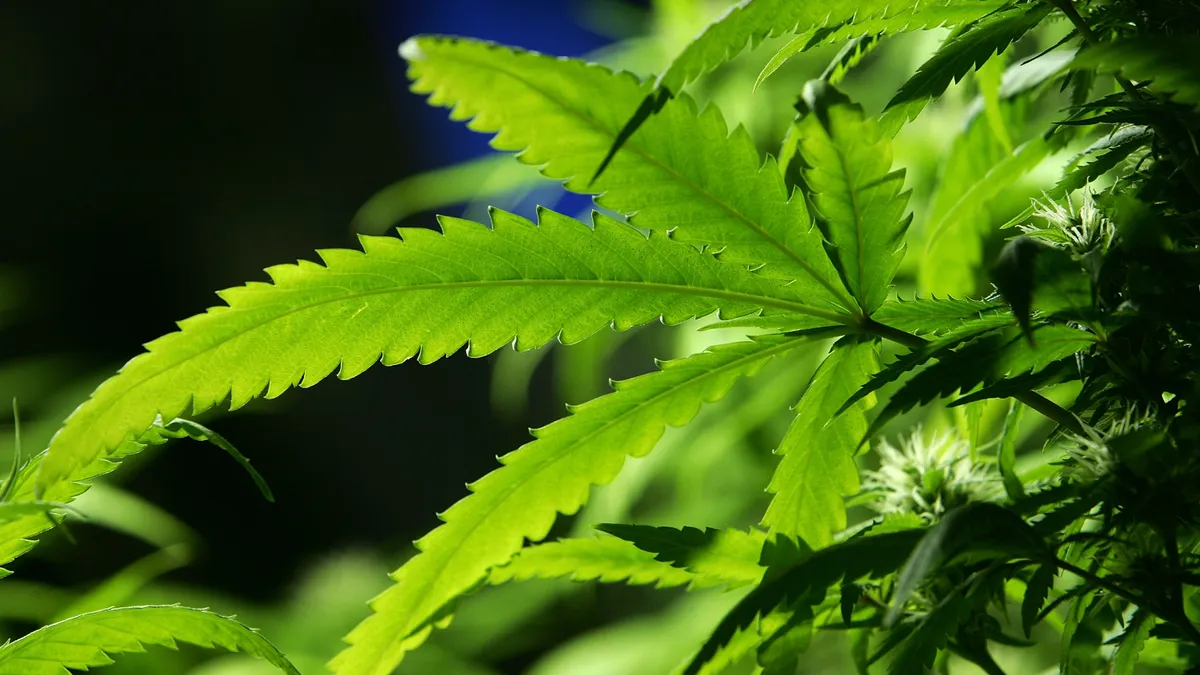Dive Brief:
- The percentage of employees in the general U.S. workforce who tested positive for marijuana after a job accident reached a 25-year high in 2022, according to data released May 18 by Quest Diagnostics.
- In 2022, 7.3% of the general workforce (private sector employees in non-safety-sensitive jobs) tested positive for marijuana in a post-accident urine test, up from 6.7% in 2021, according to Quest’s latest Drug Testing Index. After rising steadily each year for the past 10 years, the 2022 positivity rate reflected a 204% jump since 2012, Quest said.
- The increase in post-accident marijuana positivity rates corresponds with the legalization of marijuana for recreational use in certain states, starting in 2012 with Colorado and Washington, Quest noted in a news release. The DTI data “provide compelling evidence that increased use of cannabis products can contribute to greater risk for injuries in the workplace,” Katie Mueller, a National Safety Council senior program manager, stated.
Dive Insight:
Although marijuana use for any purpose is still illegal under federal law, as of April, 38 states and the District of Columbia allow it for medical purposes, and 22 states and the District of Columbia have legalized marijuana for adult recreational use, according to the National Conference of State Legislatures.
Amid growing state acceptance of marijuana use, changing societal attitudes about it — the impetus behind state laws, according to Quest — and the need to attract talent, Amazon announced June 2021 it was ending pre-employment drug testing for all jobs outside of those subject to federal Department of Transportation requirements. Amazon said it would instead treat marijuana use similar to the way it treats alcohol.
Since Amazon’s announcement, except for jobs that mandate DOT drug testing, employers have been moving away from pre-employment drug tests for their general workforce, particularly for marijuana use, a Maryland attorney told HR Dive in 2022.
Even so, in light of the DTI data, employers should take the “proper steps to create and maintain a policy that addresses cannabis use, [builds] a safety-focused culture and [educates] the workforce to keep all workers safe on and off the job,” National Safety Council’s Mueller said.
Before revising their drug testing policies, employers will want to familiarize themselves with their applicable state law, as the laws offer varying protections for job applicants and current employees, experts say.
In Washington state, where recreational use of marijuana is legal, new legislation addresses concerns about the “disconnect between an employee’s legal off-duty activities and an employer’s hiring criteria,” Fisher Phillips attorney Alexander Wheatley noted in a May post.
The law, which takes effect in January 2024, focuses on pre-employment testing. It protects a job applicant from discrimination based on their cannabis use off the job and away from the workplace and prohibits employers from denying someone a job because of a positive drug test for nonpsychoactive cannabis metabolites, Wheatley said.
Another law, the District of Columbia’s Cannabis Employment Protections Amendment Act of 2022, prohibits employers from refusing to hire someone because of their recreational cannabis use, participating in D.C.’s or another state’s medical cannabis program, or for failing to pass a cannabis drug test, Mintz attorneys Danielle Bereznay and David Barmak wrote in a March post.
The D.C. law also protects current employees: It prohibits employers from taking adverse action, such as firing, suspending or demoting an employee, for those same reasons, Bereznay and Barmak explained. The law is expected to become enforceable in July, they said.
Like Washington’s law, the D.C. act makes certain exceptions, including for safety-sensitive positions.
Safety is paramount, however, and many laws decriminalizing the use of marijuana still allow employers to create policies that aid in maintaining a safe workplace, an attorney previously told HR Dive.
Typically, employers rely on managers to spot the signs of drug or alcohol intoxication on the job. So it’s key that managers receive training on how to determine and document when there is reasonable suspicion that an employee is working under the influence, experts have said.













